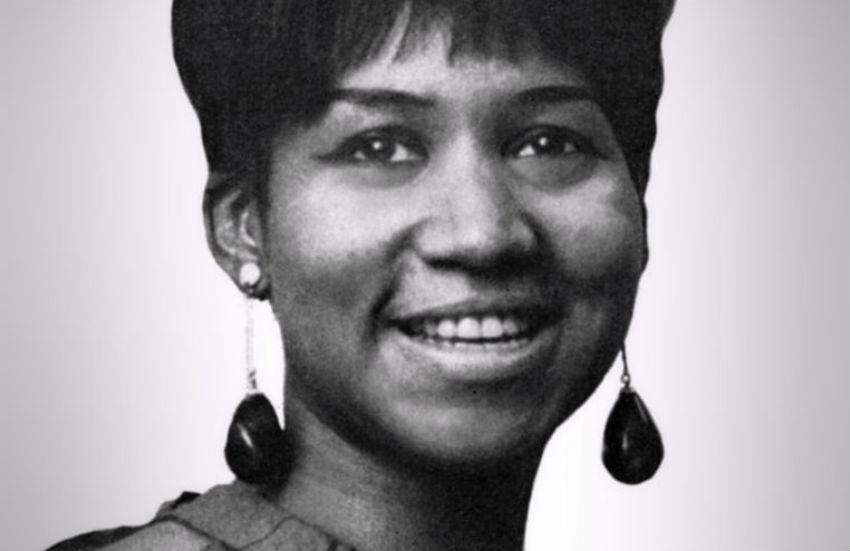The first two months of 1992 will go down in my personal history as a time of legends. I was several months into my first professional gig out of school, covering music as a reporter for People magazine.
On 21 January, my editor sent me to the Rock and Roll Hall of Fame induction ceremony at the Waldorf Astoria New York. There I met and interviewed Johnny Cash.
About a month later, on 24 February, I received another A-lister assignment: covering Clive Davis’s annual pre-Grammys bash.
Shortly after checking in and picking up my press pass, I held court with another music royal, the Queen of Soul herself, Aretha Franklin, an early arrival who clearly didn’t believe a grand entrance had to be a late one.
Cash died in 2003 at age 71, and now, sadly, Franklin has also left us too soon. She passed away at home in Detroit on August 13 at age 76 after a long battle with pancreatic cancer.
Down to earth but out of this world
I’ll always remember the way she was on that Monday night at the Plaza Hotel in New York City. She had a distinct and distinguishable regal air. Aretha clearly knew she was somebody important (and if she hadn’t, the flashing lights of the photographers’ cameras no doubt would have reminded her), but she didn’t seem to presume that her celebrity put her above anybody there.
She had no visible entourage, only Arista Records founder and president Clive Davis, the architect of Whitney Houston’s stardom who had redesigned Franklin’s for the ’80s and beyond, guiding her through the crowd.
When they stopped in front of me, I approached them and told Franklin how nice it was to meet her and thanked her for years of unforgettable music.
She was warm and gracious, and she didn’t act like someone who’d heard it all before and would hear it a million times over again that night before all was said and sung.
Without offering anything more than direct eye contact and ‘Thank you. It’s so nice to meet you,’ she made me feel like our interaction was as special and important to her as it was to me.
That night I shared mingling space with at least three other soul legends — Gladys Knight, Dionne Warwick, and Luther Vandross — and sipped wine and joked around with new-diva-on-the-block Lisa Stansfield (who accidentally spilled her glass of white on me), but in my memory, that evening has always been all about Aretha Franklin.
(The only other time I saw Lady Soul in the flesh was several years later at a New York City event held in her honor. When I first spotted the Queen, she was seated not on a throne, but on the dais, eating chicken… with her fingers. So real!)
The thing that struck me most about her was her serene demeanor and her effortlessness. The latter was a familiar Aretha quality that always had been present in her music, but I never expected to see it in person when she wasn’t singing. She was regal without straining to be royal, just like she was a musical force without straining to be heard.
Aretha’s gay connection
Celebrated as Franklin was and always will be among gay men (and everyone else), she never quite qualified as a gay icon. Perhaps that was partly because she wasn’t a diva in the fabulous big-hair-and-makeup sense.
She wasn’t teased and polished to make her as palatable as possible to the black and white masses.
Aretha’s look was always as unapologetically black as her sound. The only living superstar who comes close is Mary J. Blige.
Although Franklin endured her share of personal trials (two teenage pregnancies; the shooting, coma, and death of her father, Reverend C.L. Franklin; and the loss of her two sisters, Erma and Carolyn), she was never defined by the tragic-songbird narrative (RIP, Judy Garland) or fit in among the ugly ducklings-turned-swans (live forever, Barbra Streisand).
Her talent was larger than life, but unlike the Madonnas and Mariahs and Gagas of the music world, her persona never was.
Aretha and Dusty
Franklin was made of earthier stuff, and that’s what made her singing, her songwriting, and her piano playing so transcendent. Dusty Springfield, another late earthy soul icon, once told me that one of the greatest compliments she ever received was from Aretha as she passed her while entering a lift.
‘Girl,’ an exiting Franklin said as she touched Springfield on her shoulder. That was it. That was all it took for Dusty to fangirl all over the place.
Springfield said that in later years, whenever she sang her signature classic ‘Son of a Preacher Man’ (which was initially offered to Franklin, who turned it down), she sang it the way Franklin sang it when Franklin finally got around to singing it.
[embedded content]
The ultimate cover girl
Speaking of Aretha’s way with remakes, her gift for interpretation remains unparalleled by anyone who wasn’t/isn’t Ray Charles or Luther Vandross. Her cover of Burt Bacharach and Hal David’s ‘This Girl’s in Love with You,’ a hit single for both Herb Alpert and Dionne Warwick, is both testimony and master class for students of soul who fantasize about taking ownership of someone else’s smash.
Dusty Springfield recorded it, too, but nobody, not Alpert and not Warwick (whose naked vulnerability on her version still makes me tingle), could give ‘This Girl’ the tortured gravitas that Aretha poured over it, a tortured gravitas that Bacharach and David probably never imagined while writing the song. It’s Franklin at her rawest and most emotionally bare.
[embedded content]
Today, when I think of the pop standards ‘Bridge Over Troubled Water’ and ‘I Say a Little Prayer,’ I think of Franklin as much as I do Simon and Garfunkel and Dionne Warwick, who, respectively, originally made them hits.
Aretha’s covers, both of which went Top 10 pop, aren’t so much remakes as they are complete overhauls. I wouldn’t be surprised if when Simon thinks of his most famous composition, he hears Franklin, not Art Garfunkel, singing it.
[embedded content]
Like most creative geniuses, Franklin had her share of contradictions. She was one of music’s earliest feminists via her 1967 breakthrough chart-topper, ‘Respect,’ and she also scored a late-career hit singing ‘Sisters Are Doing It for Themselves’ beside Annie Lennox of Eurythmics.
Yet she wasn’t afraid or ashamed to extol the emotional and sexual benefits of a good man while resolving to do whatever it takes to keep him. She did all of the above perhaps most memorably on ‘Dr. Feelgood,’ ‘Jump to It,’ and her cover of ‘This Girl’s in Love with You.’
[embedded content]
[embedded content]
As a gay black man who’s never allowed himself to be completely defined by any of those things, I’ve always appreciated Franklin’s contradictions and resistance to easy categorization as much as I have her music. She refused to typecast herself or let others do it for her.
That, as much as the talent, as much as the hits, is what made her a queen. Not just of soul, but of everything she touched. Music in the 21st century wouldn’t be the same without her influence. And like all the late great monarchs, her reign will outlive us all.
This column first appeared on Medium – reprinted with permission. Jeremy Helligar’s book, Is It True What They Say About Black Men?: Tales of Love, Lust and Language Barriers on the Other Side of the World, is available via Amazon.
See also
Just because I’m a gay man, my life doesn’t revolve around sex
100 years of LGBT music and why gay history didn’t start with Stonewall







